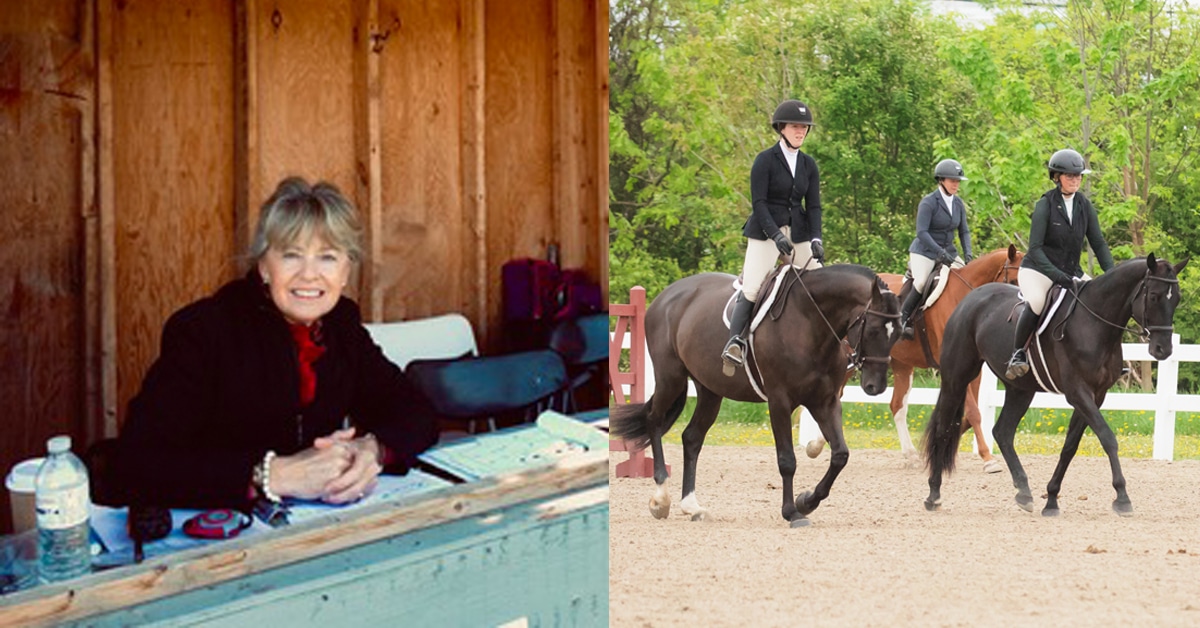At the close of every year, I stop and contemplate. I consider each horse at our farm. I think about myself, as a rider, horseperson and human. I set goals, and reflect on progress (or lack thereof on occasion). And then I plan. Then, more regularly than not, I adapt my plan. And it’s not unheard of for me to adapt my plan again through the year.
When I hit a blip in my goals, I stop and pause and consider what is blocking me. Is it fear? Fear of being incorrect? Fear of getting hurt or hurting a horse? Perhaps a lack of knowledge is preventing forward motion? If it’s any of these things, establishing a goal and then laying out small structured steps to keep moving can make all the difference.
Then, as I look at my goals, I set an aspirational dream, which may or may not seem attainable, but keeps me stretching myself. I visualize myself achieving that dream. Then I block out 90-day stretches to set smaller purpose-driven goals.
Our mare Imagine (aka Maggi) is a testament to this strategy being an appropriate way to keep growing. She’s sound and a solid citizen now, but since she first arrived six years ago, I have thoughtfully planned our time together. Goals have given us power; power in and of ourselves. Power to understand that we are good, strong and competent enough to do the things we want to do.
One of the reasons I set goals is to reach success and satisfaction. I don’t get to show every weekend. I don’t get to attend clinics or get extra eyes on us often, but by setting concrete goals, Maggi and I continue to move forward. We grow, learn new things and get the chance to celebrate accomplishments. Maggi doesn’t get to choose the goals, so I make sure that some of them are horse-centred. For example, one goal is to work with happy and cooperative partners, so I invest in bodywork for her to make sure she’s feeling her best.
I balance using process goals and outcome goals. Winning a ribbon is an outcome goal – and I set (and work to achieve) those goals. I think 2020 may be Maggi’s turn to earn a ribbon! Outcome goals are often performance-based and are what many people think of when they think of goal-setting. Process goals allow you to learn. Through the mistakes made, through the opportunities seized, through the small steps that build on each other, we learn the most. So, when I am thinking about the upcoming year, I balance my goals, for Maggi and me, with both outcome and process in mind.
When making a goal, consider if it is S.M.A.R.T. If goals are Specific, Measurable, Achievable, Relevant and Timely, they are usually worth focus. I put a positive spin on my goals, saying for example “Our canter transitions will be fluid and graceful” instead of “Maggi’s head won’t come up and she won’t rush through transitions.” By focusing on the positive goal and not the negative elements, I am setting myself up for success. Mindset is a huge part of riding and every element that can be positive helps us leave our human tendency to negativity bias behind.
An arbitrary deadline for the goals feels appealing, but New Year’s resolutions have a long history of failure. So instead, I take my time, reflect about what matters, talk to the people around me (a coach, a friend, my partner) and figure out what goal deadlines are realistic. If I set unrealistic goals, we will fail. And while failure is information, I hardly need to set a goal of failure deliberately. It happens anyhow! Goals are dynamic, organic and so very useful.
Goals don’t make me a perfect rider, but they, combined with record-keeping and a healthy dose of motivation, make me accountable to myself. They inspire hope and pride. Goals give us the impetus to keep enjoying work. And that is one of my primary goals. Have fun and work in a good balance with the horses. Like so much else with horses it takes practice. It’s so very worth it though.
The Latest









